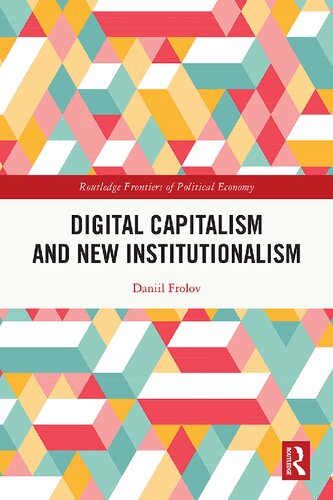(Ebook) Digital Capitalism and New Institutionalism by Daniil Frolov ISBN 9781032212364, 1032212365
Modern institutional economics was created to study the institutions of pre-digital economies and is based on reductionist approaches. But digital capitalism is producing institutions of unprecedented complexity. This book argues therefore that not only the economic institutions themselves but also the theoretical foundations for studying those institutions must now be adapted to digital capitalism. The book focuses on the institutional complexity of digital capitalism, developing an interdisciplinary framework which brings together cutting-edge theoretical approaches from philosophy (first of all, object-oriented ontology), sociology (especially actor-network theory), evolutionary biology, and cognitive science. In particular, the book outlines a new approach to the study of institutional evolution, based on extended evolutionary synthesis - a new paradigm in evolutionary biology, which is now replacing neo-Darwinism. The book develops an enactivist notion of extended cognition and cognitive institutions, rejecting the individualistic and mechanistic understanding of economic rationality in digital environments. The author experiments with new philosophical approaches to investigate institutional complexity, for example, the ideas of the flat ontology and the assemblage theory. The flat ontology approach is applied to the study of human-robot institutions, as well as to thinking about post-anthropocentric institutional design. Assemblage thinking allows for a new (much less idealistic) look at blockchain and smart cities. Blockchain as digital institutional technology is considered in the book not from the viewpoint of minimizing transaction costs (as is customary in the modern institutional economics), but by using the theory of transaction value which focuses on improving the quality of digital transactions. The book includes a wide range of examples ranging from metaverses, cryptocurrencies and big data to robot rules, smart contracts and machine learning algorithms. Written for researchers in institutional economics and other social sciences, this interdisciplinary book is essential reading for anyone interested in the interplay of institutional and digital change.
*Free conversion of into popular formats such as PDF, DOCX, DOC, AZW, EPUB, and MOBI after payment.


